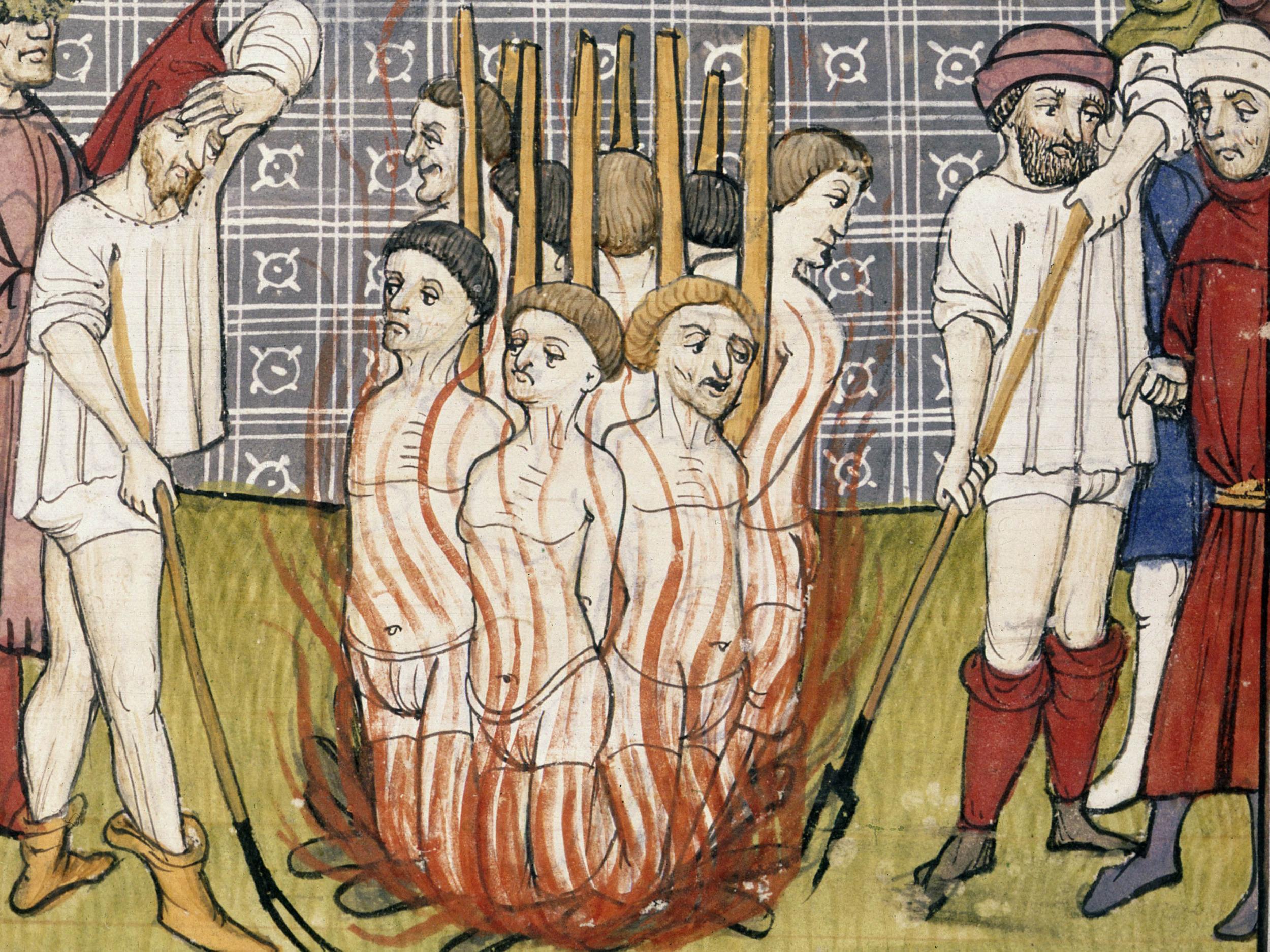Why is Friday the 13th considered unlucky?
Superstition can be traced back to Knights Templar in Middle Ages
Your support helps us to tell the story
From reproductive rights to climate change to Big Tech, The Independent is on the ground when the story is developing. Whether it's investigating the financials of Elon Musk's pro-Trump PAC or producing our latest documentary, 'The A Word', which shines a light on the American women fighting for reproductive rights, we know how important it is to parse out the facts from the messaging.
At such a critical moment in US history, we need reporters on the ground. Your donation allows us to keep sending journalists to speak to both sides of the story.
The Independent is trusted by Americans across the entire political spectrum. And unlike many other quality news outlets, we choose not to lock Americans out of our reporting and analysis with paywalls. We believe quality journalism should be available to everyone, paid for by those who can afford it.
Your support makes all the difference.The only Friday 13th of 2022 has arrived, and for the superstitious among us the date means only one thing: bad luck.
Most years have two Friday the 13ths – and sometimes three – although 2022 will be an anomaly with only one.
The superstition surrounding Friday the 13th is thought to originate with the Last Supper, which was attended by 13 people – Jesus Christ and his 12 disciples – on Maundy Thursday, the night before his crucifixion by Roman soldiers on Good Friday.
The number 13 is therefore associated with Judas Iscariot, Christ’s betrayer, and is regarded as imperfect when compared with 12, which represents the number of months in a year.
The union of day and date has also been traced back to King Philip IV of France arresting hundreds of Knights Templar on Friday 13 October 1307.
The Catholic crusaders were apprehended, under pressure from Pope Clement V, over allegations made by an excommunicated former member that new recruits to the order were being forced to spit on the cross, deny Christ and engage in homosexual acts during initiation ceremonies.
The claims, seemingly entirely without foundation, were a convenient pretext for Philip to persecute the wealthy order and waive debts he owed them following war with England.
Charged with moral and financial corruption and worshipping false idols, often following confessions obtained under torture, many of the knights were later burnt at the stake in Paris.
The order’s Grand Master, Jacques de Molay, faced the flames in front of Notre Dame Cathedral and is said to have cried out a curse on those who persecuted its members: “God knows who is wrong and has sinned. Soon a calamity will occur to those who have condemned us to death.”

The events initiated by the holy warriors’ arrest, according to tradition, ensured every subsequent Friday the 13th meant bad luck to one and all, De Molay’s hex ringing out through the ages.
An irrational fear of the date is known as paraskevidekatriaphobia.
In Spanish-speaking countries and in Greece, it is Tuesday the 13th that frightens people. In Italy, it is Friday the 17th.
Other famous indicators of bad luck include a black cat crossing your path, breaking a mirror, walking under a ladder, opening an umbrella indoors and saying the name of Shakespeare’s “Scottish play” in a theatre.

Join our commenting forum
Join thought-provoking conversations, follow other Independent readers and see their replies
Comments